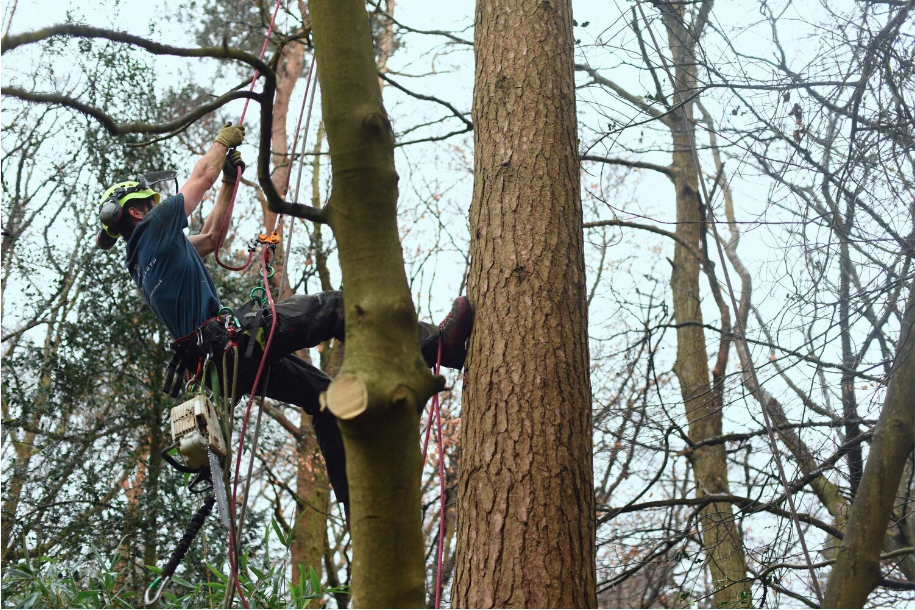Insights Regarding What Type of Tree Surgery to Specialise In - The DTE Academy
There are numerous different aspects to the Tree Surgeon’s job. So it is perhaps inevitable that at some point most Tree Surgeons will find they are more adept at one part of the job than they are with others, at which time they may offer specialised services that play to their strengths. But what are the different aspects of the Tree Surgeon’s work? If you are thinking about which type of Tree Surgery to specialise in, read on.
Which Type of Tree Surgery to Specialise In?
There is nothing stating that you have to specialise in one aspect of Tree Surgery, but if you are considering this career and have questions about the potential for specialisation, here are the most common aspects of the Tree Surgeon’s work.
Crown work - This entails everything from crown reduction (reducing the size of a tree’s canopy) to crown thinning (reducing the number of branches to allow greater amounts of light to pass through) and crown lifting (creating more space between ground and canopy by removing low hanging branches).
Dead wooding - As the years pass and the tree grows it is only natural that some branches will die. Dead wooding is the process of removing these dead branches so as to eliminate the risk of them falling to the ground and causing harm to life or property.
Pollarding - Pollarding a tree involves removing most or all of the branches with the goal of controlling its mature size and shape. This is a common area of specialisation since properties with formal landscaping often want their trees to adhere to a certain aesthetic. Pollarding is also used when a tree is planted in an area that’s considered too small to allow it to reach its full growth potential.
Felling and/or removing fallen trees - Some tree surgeons specialise in felling old trees or trees damaged by extreme weather events. They may also offer to remove trees that have fallen over of their own accord or because of foul weather.
Tree Surveys – When you consider the consistent demand for a wide variety of tree surveys in the United Kingdom, it is no wonder that some tree surgeons decide to specialise in this lucrative field. Among the types of surveys you may be asked to perform on a regular basis if you decide to follow their example are tree health and condition surveys, veteran tree surveys, commercial tree risk assessment surveys and woodland conservation surveys.
Forestry and Woodland Management Consultancy – Another one of the most lucrative types of tree surgery to specialise in, once you have plenty of experience under your belt is the field of commercial forestry and woodland consultancy. Advising landowners and the Forestry Commission on tree care and management is a very important job and one that requires an intimate knowledge of arboricultural best practices. For this reason, it is not an area in which newcomers can choose to specialise but if this field appeals to you, it is something you can work towards once you are a fully qualified tree surgeon.
Aerial Inspections – For tree surgeons who enjoy viewing their patients from a more elevated perspective, specialising in aerial inspections could be an excellent option to consider. Aerial inspections are often required after trees have sustained damage in heavy storms. They are also commonly requested by conservation groups, to inspect roosting sites in trees that bats may be using in the United Kingdom. If you want to specialise in this field, you will not only need to be a very competent tree surgeon, you will also need to be a strong climber and have a great head for heights.
Stump Grinding – If you are looking for types of tree surgery to specialise in that you can focus on shortly after you become fully qualified, stump grinding could fit the bill. Once you have learned how to handle the various types of stump grinder in common use today, you will be ready to start specialising almost immediately. In addition to being a good choice of specialisation for relative newcomers, stump grinding is a great option for tree surgeons who are not keen on heights!
If you would like to learn more about the type of Tree Surgery to specialise in call DTE on 01959 524 623, or drop us a line at enquiries@dtetrees.co.uk.

